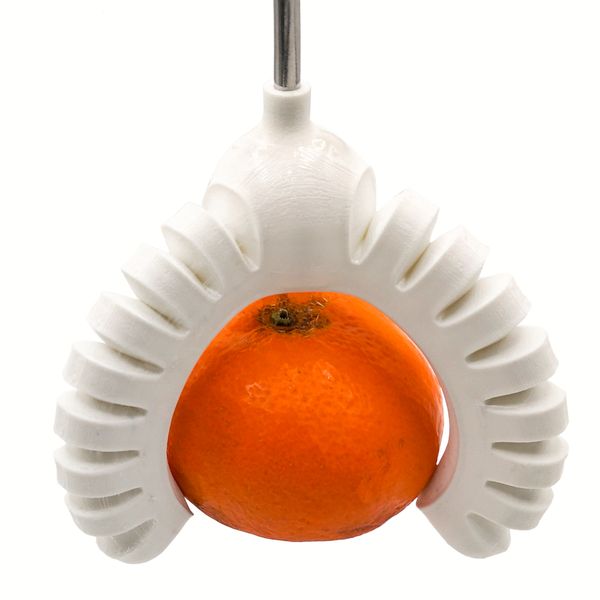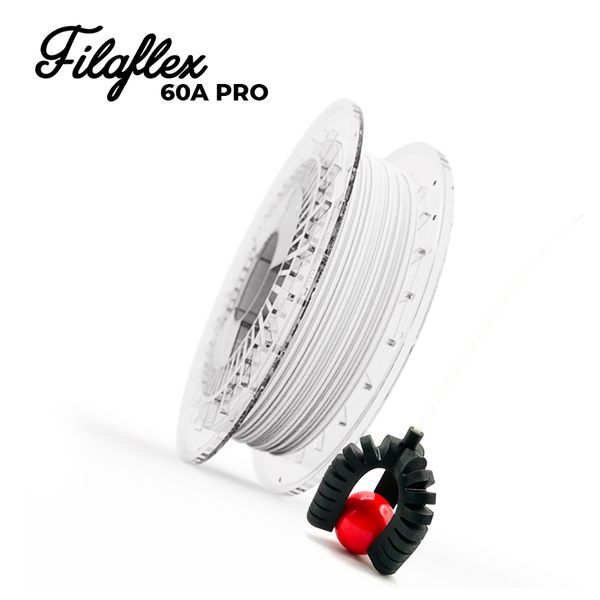
Recreus announced a new filament that might be the most elastic flexible material on the market.
The Spanish company has specialized in developing flexible 3D printer filaments since 2013, releasing the Filaflex line of materials.
Flexible materials are notoriously challenging to 3D print, as their flexibility often conflicts with the design of some 3D printers that assume the filament is rigid and easy to push to the hot end. However, through Recreus’ work, the Filaflex line is quite practical to 3D print on many different machines.
These filaments have been used to produce all types of flexible objects, such as handles, covers, etc. One particularly interesting application has been wearable items, including footwear and even clothing.
Now they’ve announced a new material called “Filaflex 60A PRO”. Let’s take this apart.
This is an elastic material, meaning that if distorted, it will return to its original geometry. Recreus said:
“Filaflex 60A ‘PRO’ has the property of elasticity. That is, after stretching it returns to its original shape without deforming, as long as the elastic limit of the material is not exceeded.”
Why produce this new material? Recreus explains:
“It has been a hard work of innovation, but the result has been very worthwhile. There was a great demand from our clients and the market, sectors such as textile, footwear or medical (prosthetics) were requesting it from us. So, finally, after a long R&D process by Recreus, we have it ready and available on our website.”
The “60A” refers to the hardness measurement of the material, as gauged on the Shore A hardness scale. The lower the number, the softer the material. Filaflex’s previous materials were 95A, 82A and 70A. The new 60A is much softer.

An immediate question is the viability of 3D printing an even softer material. Typically 3D printing of flexible materials requires a direct drive extruder, as well as dramatically slowing the print speed to prevent jams. But apparently Recreus has managed to determine proper methods of 3D printing. They explain:
“With a growing community of fans of flexible, experienced and knowledgeable people who print with flexible filament (even Filaflex 70A filament) and, above all, thanks to the appearance on the market of new low cost’ 3D printers, like the Artillery Sidewinder x1, which perfectly prints this type of soft and elastic filaments, it was time to continue evolving and advancing in the search for maximum elasticity.”
Recreus suggests Filaflex 60A Pro is very close to the softness of silicone. Silicone is a highly desirable material that at present has very few 3D printer options. Typically specialized 3D printers have been developed to handle silicone.
However, with the introduction of Filaflex 60A Pro, it may be possible in some applications to substitute it for actual silicone. That would certainly be less expensive as you would not have to acquire a specialized silicone 3D printer.
Filaflex 60A Pro is not inexpensive itself, however, with a 500g spool going for €50 (US$60) and a 3kg spool priced at €219 (US$262).
If you’re working on an application that requires very soft material, you might consider looking at Filaflex 60A Pro.
Via Recreus
